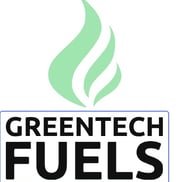GreenTech Fuels focuses on converting waste materials into renewable energy and eco-friendly fuels, addressing both environmental sustainability and the growing need for alternative energy sources. Below are some of the key waste types typically handled by companies like GreenTech Fuels:
1. Agricultural Waste
Types: Crop residues (straw, husks, stalks), animal manure, and other organic agricultural by-products.
Process: These are often processed into biogas, biofuels, or compost. Agricultural waste can be converted into bioenergy or organic fertilizers that are both environmentally beneficial and economically viable.
2. Plastic Waste
Types: Single-use plastics, packaging, bottles, and other plastic products.
Process: Plastic waste can be converted into fuel using pyrolysis, where plastics are heated to high temperatures in the absence of oxygen. The process produces synthetic fuels like diesel and gasoline.
3. Municipal Solid Waste (MSW)
Types: Household waste, food scraps, paper, cardboard, and mixed waste.
Process: Through various methods like waste-to-energy (WTE) technologies, organic waste is composted, while other materials are processed to generate electricity, heat, or biogas.
4. Industrial Waste
Types: Manufacturing by-products, slag, ash, and non-recyclable materials from industrial processes.
Process: These can be turned into fuel through processes such as thermal treatment (e.g., incineration) or further refinement into bio-based fuels like ethanol or biodiesel.
5. Wood and Forest Residues
Types: Tree branches, sawdust, and other wood residues from logging and forestry operations.
Process: Wood waste is often converted into biofuels like wood pellets, which can be used for heating or electricity generation.
6. Food Waste
Types: Leftover food, spoiled food, and food production waste.
Process: Food waste is converted into biogas or used in anaerobic digestion to produce methane, a renewable energy source.
7. Textile Waste
Types: Unwanted clothing, fabric offcuts, and other textiles.
Process: These materials can be converted into biofuels or used for upcycling into eco-friendly products.
8. Medical and Hazardous Waste
Types: Pharmaceutical waste, medical instruments, and chemicals.
Process: While more specialized, certain types of medical waste can be processed using incineration or advanced chemical recycling methods to safely dispose of dangerous materials and recover energy.
9. E-Waste
Types: Outdated electronics such as phones, computers, and televisions.
Process: E-waste is often dismantled, and valuable materials like metals are recovered. In some cases, it is processed for energy generation.
These waste materials are transformed into renewable energy sources, such as biogas, biodiesel, and electricity, contributing to reducing landfill waste, cutting down on pollution, and promoting sustainable energy practices.
HOME
ABOUT US
PRODUCTS
PROJECTS
TECHNOLOGY
SOLUTIONS
MEDIA CENTRE
CONTACT US
© 2024. All rights reserved.
PRODUCTS
BIOWATT COMPACT BIOMASS GASIFICATION POWER GENERATION SYSTEM
BIOMASS GASIFICATION POWER PLANT
BIOMASS GASIFIER
BIOMASS CARBONIZER
BIOMASS GASIFIER FOR GREEN-CHEMICAL
BIOMASS GASIFICATION BOILER
BIOMASS CARBONIZATION POWER PLANT
BIOMASS CARBONIZATION BOILER
COAL GASIFICATION POWER PLANT
COAL GASIFIER
WASTE GASIFIER
WASTE GASIFICATION POWER PLANT
SYNGAS GENERATOR SET
PRODUCER GAS GENERATOR SET
BIOMASS GAS GENERATOR SET
COAL GAS GENERATOR SET
GAS PURIFICATION SYSTEM
DECORBONIZATION
GREENTECH SOLAR
NANO HYDROPOWER
GREENTECH BATTERIES
HUSKTECH
CONTACT US
GREENTECH FUELS
GREENTECH HABITAT CENTER
CHOUPARAN, HAZARIBAGH, JHARKHAND, INDIA - 825406
📞 +91 6207423061
📞 +91 9973352599
www.greentechfuels.in
📧 info@greentechfuels.in


